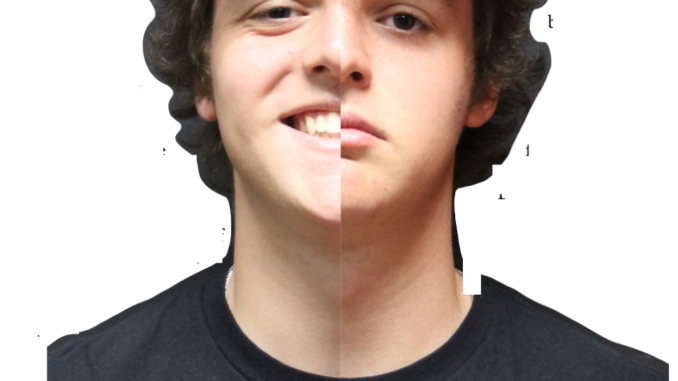
writing: Achintya Perumal
design & illustration: Lincoln Hake
Ugly, annoying, stupid, useless, and worthless are all words I would use to describe my fake friends. Every person has had a fake friend at least once in their life: if that’s you, then here’s a relatable story to relive your worst memories; if that’s not you, then here’s some preparation for when it will inevitably happen.
Aside from the highly accurate descriptions I initially used to describe a fake friend, there are a few traits of a person that can signal their evil.
The first trait of many fake friends is confidence. Real friends are insecure freaks who realize their lack of purpose in the world; someone without insecurities is mentally broken and probably an obnoxious fake friend.
One of my conceited friends acted like she was a model for wearing a bandana and was delusional enough to think that everyone wanted to get with her. Thankfully, her boyfriend humbled her by cheating on her.
Another common trait of fake friends is being manipulative. A manipulative fake friend will say they’re misunderstood to abuse anyone with a basic sense of empathy. In reality, they’re unlovable and suck the life out of everyone like a parasite.
One of my friends manipulated everyone into giving her money until just about everyone in her life dropped her once they realized how fake she was. Turns out she was just mentally ill.
Now, I can agree that it’s hard to initially base the efficacy of a friendship simply on these traits in a person. So, on top of these traits, there are also some signs I commonly notice in a fake friend.
One sign is that a fake friend is constantly talking about someone else behind their back. Usually, the things they say are projections of their satanic personality.
Many of the fake friends I’ve encountered will trash someone else in front of multiple people to try and ruin that person’s reputation and social livelihood. Ten minutes later, the fake friend would comment “SO CUTE” on the Instagram post of the person they just attacked.
Another giveaway of a fake friend is that they don’t make time for others or don’t care to respond to their messages. They’ll pretend like they’re busy when all they ever do is conspire about how to ruin another person’s life.
Many of my fake friends don’t respond to my messages until I’ve double-texted. Double texting is embarrassing, and I’d rather die than be the loser put in that humiliating of a situation.
Once a fake friend is identified, there are a few factors to consider when deciding the fate of the friendship. While the common man might immediately say to drop them, my educated self knows that keeping them is oftentimes the better option. Even through the pain and mental suffering of having a fake friend, there are two valid reasons to keep someone toxic.
The first one is attractiveness—seeing as looks are always more important than personality. If the fake friend is hideous, then their presence can help make one’s appearance much more charming.
If the qualities of a fake friend make me seem superior, then keeping that friend is always my best option. The mental suffering might be difficult, but I have to make sure to prioritize my social appeal.
Popularity, especially in the brainless setting of an all-American high school, is another valid reason for toxic friendships. In high school, one’s entire value as a human being is based solely on how others see them.
There’s no “be yourself;” instead, one should focus on fitting in and being accepted. Having connections to someone on a higher level of the high school hierarchy can bring multiple benefits to one’s social circle and self-worth. It’s like nepotism but for idiotic children.
Only after outweighing the advantages and drawbacks of that friend can one truly assess whether to keep the fake friend in their life. I personally always keep a few fake friends just for the aesthetic. Like weird old people always say, keep your friends close and your enemies closer—especially if they’re ugly.


